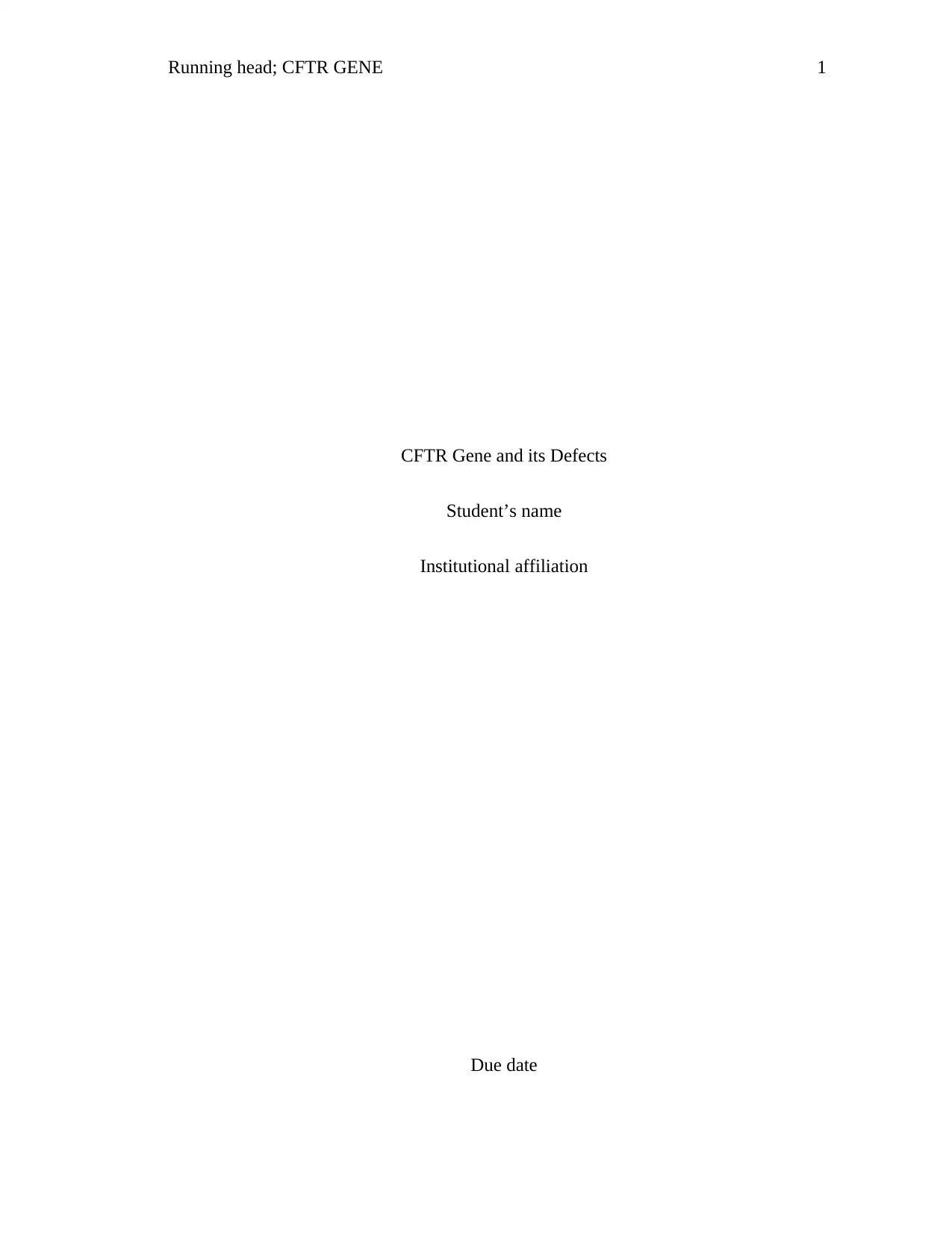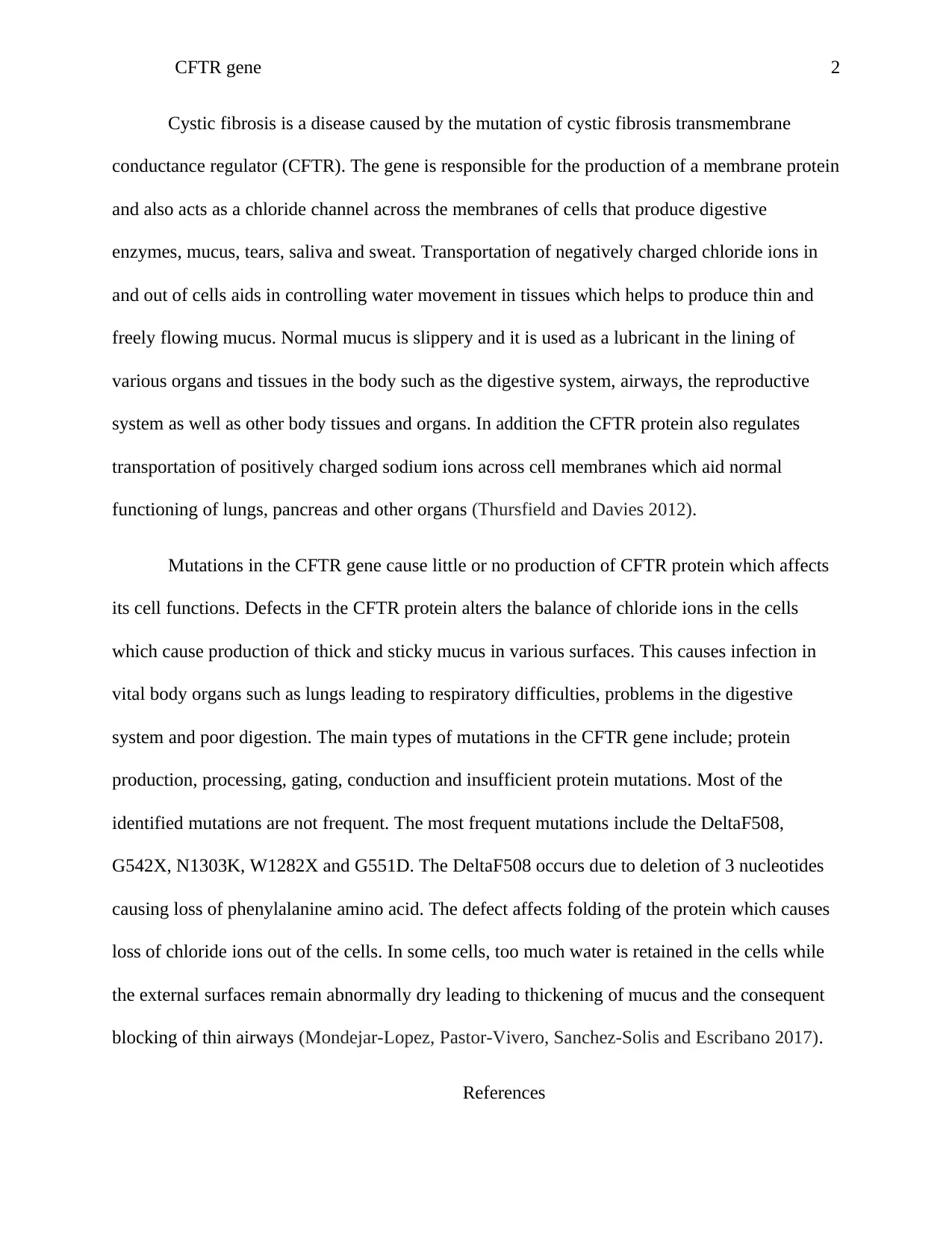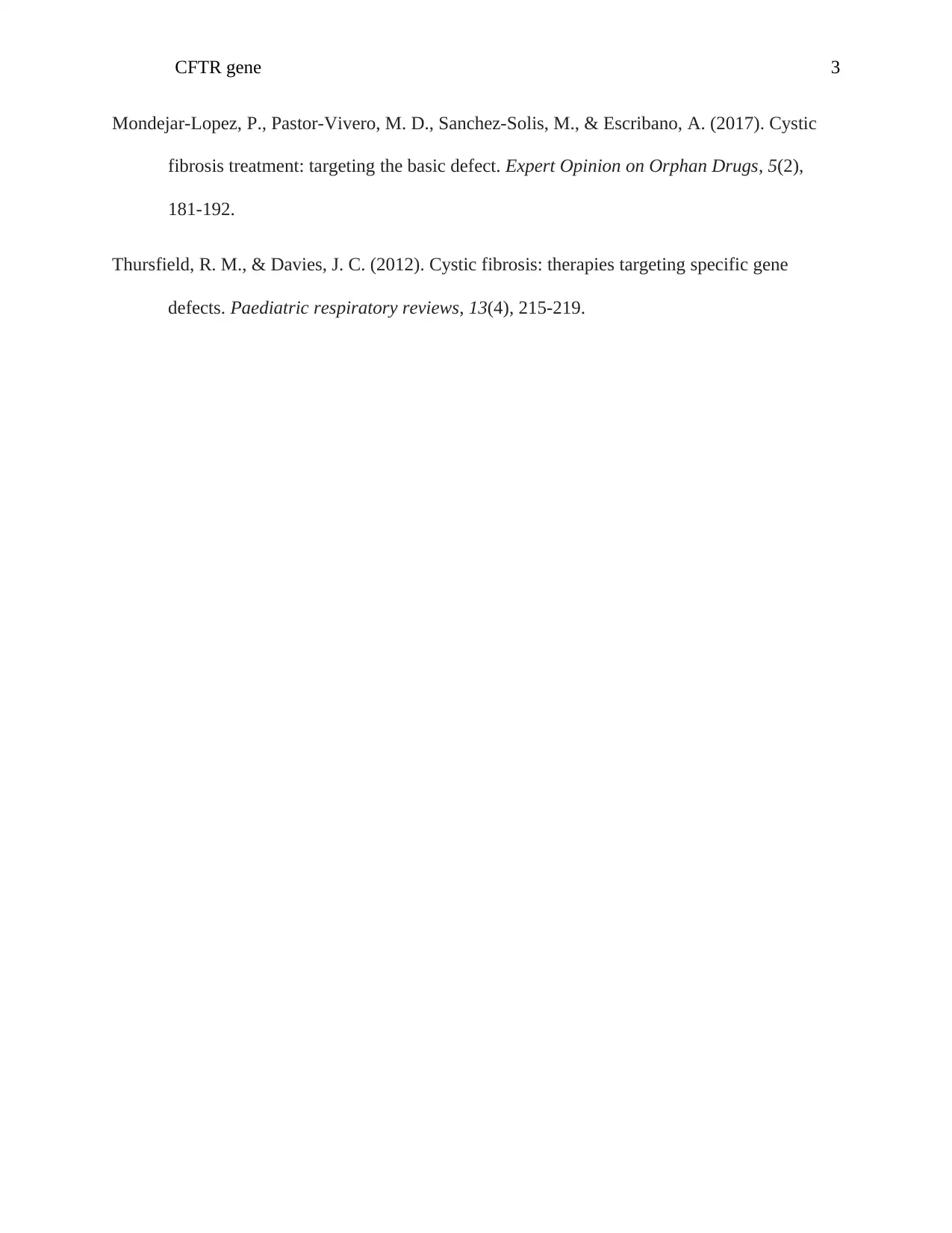Cystic Fibrosis: Investigating CFTR Gene Defects and Their Impact
VerifiedAdded on 2022/09/22
|3
|454
|32
Report
AI Summary
This report examines the CFTR gene and its crucial role in the development of cystic fibrosis. It explains how the CFTR gene regulates the production of a protein that acts as a chloride channel, affecting the movement of chloride ions and water in the cells. The report details the impact of mutations in the CFTR gene, leading to the production of thick and sticky mucus, which causes respiratory and digestive problems. The report highlights the most frequent mutations, including DeltaF508, G542X, N1303K, W1282X, and G551D, and explains how these mutations disrupt the normal functioning of the CFTR protein. It also provides insights into the implications of these defects on the health of individuals with cystic fibrosis and the challenges related to treatment. This report is a valuable resource for understanding the genetic basis of cystic fibrosis and the various ways in which it impacts human health.
1 out of 3










![[object Object]](/_next/static/media/star-bottom.7253800d.svg)